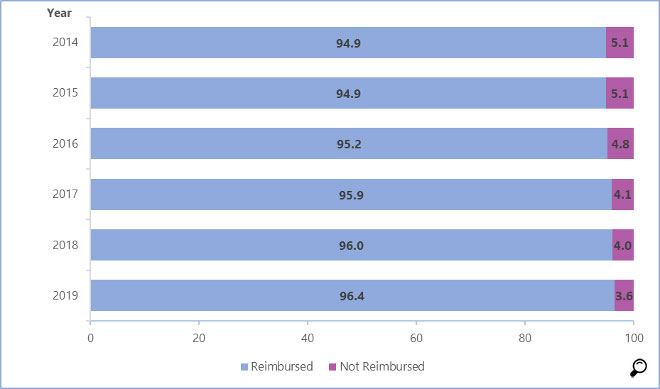As previously mentioned, almost all of the healthcare expenditures are covered by the state, including expenditures on pharmaceuticals. It is estimated that products reimbursed by SSI make up 93%7 of the total pharmaceutical expenditures. According to AIFD estimates, 29%6 of the publicly sponsored medicinal expenditures goes to innovative products, the remaining covers the expenditures for generics or originals in the same category as generics.
Share of Unit (Pack) Sales Over Years According to Reimbursement Status, (%)11

The social health insurance system in Turkey reached its limits. Almost all of its population is covered by general health insurance and can access a wide range of services with limited copayments. There are policies that would allow more efficient use of public resources and also to share the current burden on public finance.
Private insurance system is one avenue where the state could share the social burden. It is necessary to utilise an income-based private insurance mechanism with complementary health insurance and health insurance policies in order to assure the sustainability of the social health system with its current quality and coverage of services. The current share of private insurance in Turkey is far from alleviating the burden of the social healthcare system.
Another policy to decrease the burden on social health insurance is to regulate the over-the-counter medicines and exclude those deemed suitable from the reimbursement coverage. A more detailed AIFD position on the non-prescription pharmaceuticals is available in the following section.
There are two main policies in the framework of efficient use of public resource allocation to healthcare;
1) Focusing on preventive care with special attention to adult preventive vaccination programs and bringing the adult vaccination coverage at par with the success in child vaccination
2) Creating an efficient referral system to increase the efficiency of access to healthcare.

